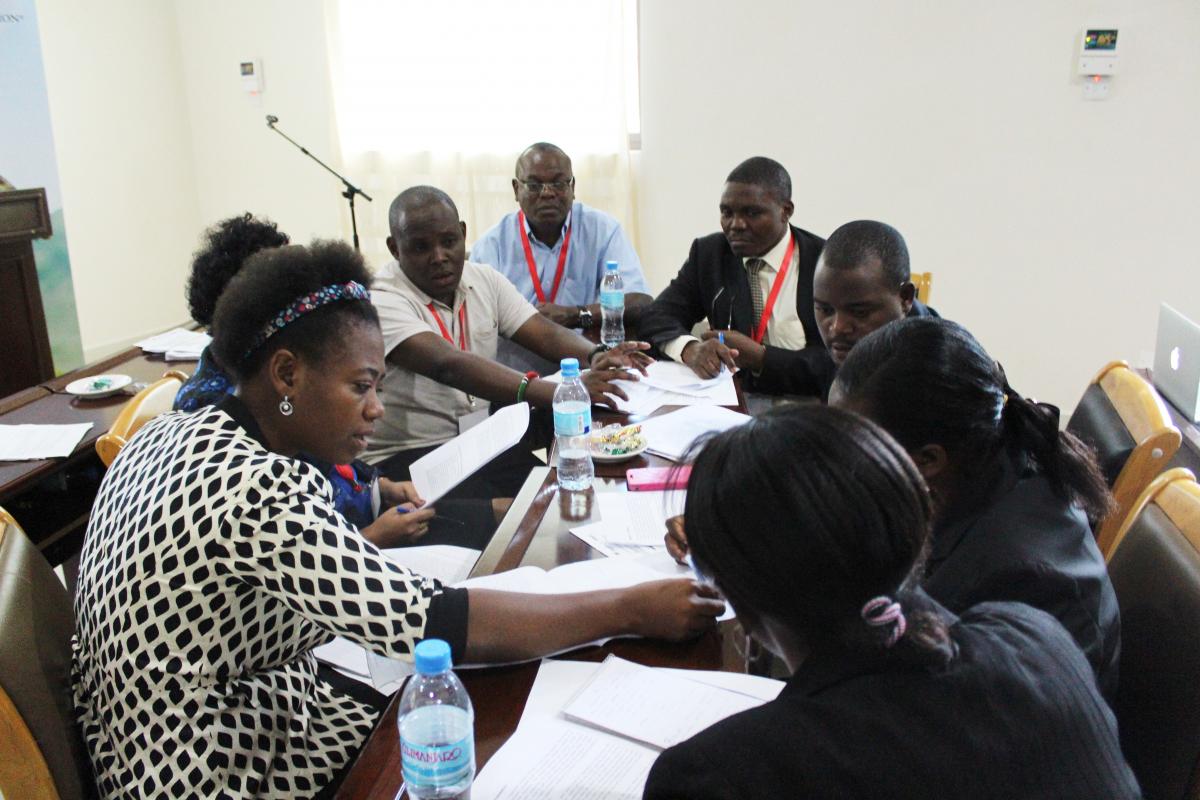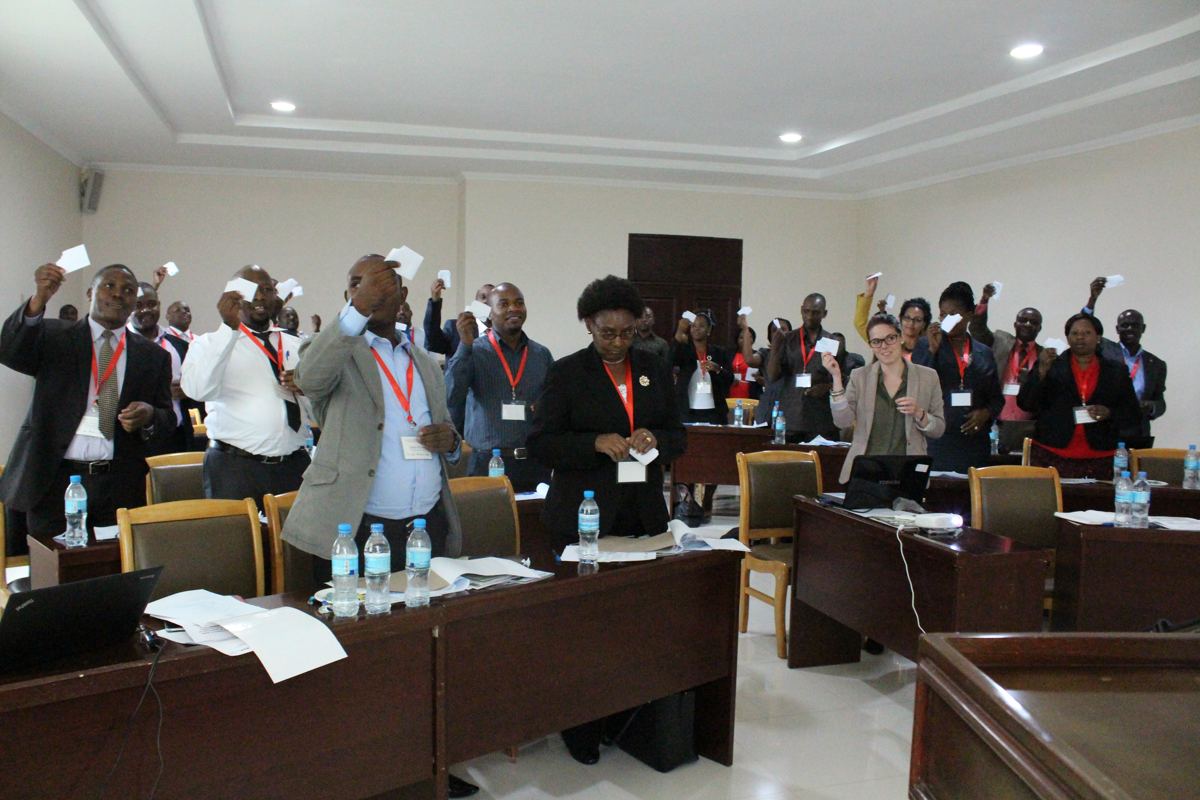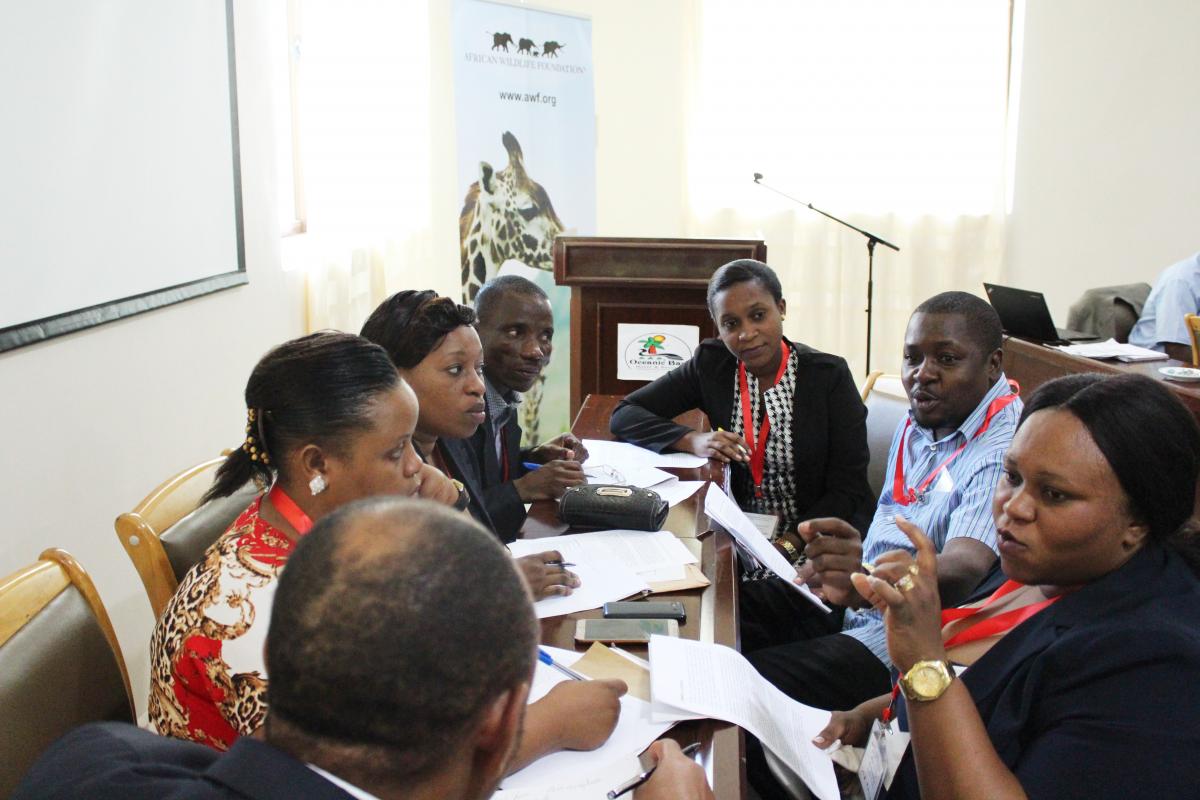Wildlife crime fighting in Tanzania
"It is high time now that we come together and fight for this ... for ourselves and for our future .... it is upon us, the investigators, the prosecutors and the judiciary, to work together and to make this enemy stop" said Batilda Stephen Mushi, State Attorney at the Director of Public Prosecutions' Office in Dar-es-Salaam, Tanzania.
She is referring to the fight against wildlife crime, through cooperation between stakeholders along the judicial chain with the objective to improve convictions of wildlife offenders. After a three-day workshop on sharing experiences and learning about existing legal mechanisms, participants and organisers have identified gaps and solutions to strengthen the Tanzanian legal system to combat wildlife crime.
Facing the most significant population decrease in some of its emblematic wild species in recent times, Tanzania has started to gather forces to reinforce protection of wildlife. It is in this context that the IUCN Environmental Law Centre, working with the African Wildlife Foundation (AWF) and TRAFFIC, organised a three-day workshop to train two investigators, five prosecutors and 17 magistrates on legal mechanisms to combat wildlife crime. This workshop was organized with the support of the Training Department of Tanzania’s Judiciary and the Wildlife Division of Tanzania’s Ministry of Natural Resources and Tourism in Bagamoyo, Tanzania from 24 to 26 May, 2016.
Apart from constituting an invaluable biological and scientific asset for past, present and future generations, wildlife also represents over 17% of the country’s GDP[1]. Yet, poaching and illicit trade in wildlife and wildlife products are now conducted by highly organised armed groups acting on a transnational scale, threatening economic and social developments in the country as well as security and undermining the rule of law.
The workshop was organized in response to an identified need for legal training on the topic of wildlife crime[2], this workshop provided an opportunity for the participants to learn about existing tools and technologies to investigate wildlife crimes both in the country and at the international level, wildlife-related legislation and similar experiences in Kenya and Uganda.
The IUCN Environmental Law Centre of the IUCN also presented preliminary results from its legal analysis conducted on wildlife-related court decisions collected across Tanzania during the past 8 months, showing the % of cases that are reversed on appeal, charges brought, and penalties imposed.
Built as a forum for sharing of experiences and open discussions, investigators, prosecutors and the judiciary recognised the critical role they have to play in ensuring the deterrent effect of the law. "Talk for the elephant, talk for the leopard, talk for your unborn children – you are the one to do it. They cannot talk for themselves" said Rita Tarimo, Senior Resident Magistrate, Temeke District, Dar-es-Salaam.
Establishing a cooperative spirit among stakeholders as well as increasing access to investigative tools and knowledge of the laws and procedures along the judicial chain were identified as key elements in reducing wildlife crime in Tanzania.
This capacity-building workshop was funded by the German government through the “Polifund” project implemented by GIZ. A second judicial workshop will take place in the Arusha region in the upcoming months.
[1] Source: Tanzanian Ministry of Natural Resources and Tourism
[2] Source: TRAFFIC East Africa, Judiciary Training Needs Assessment, 2016



